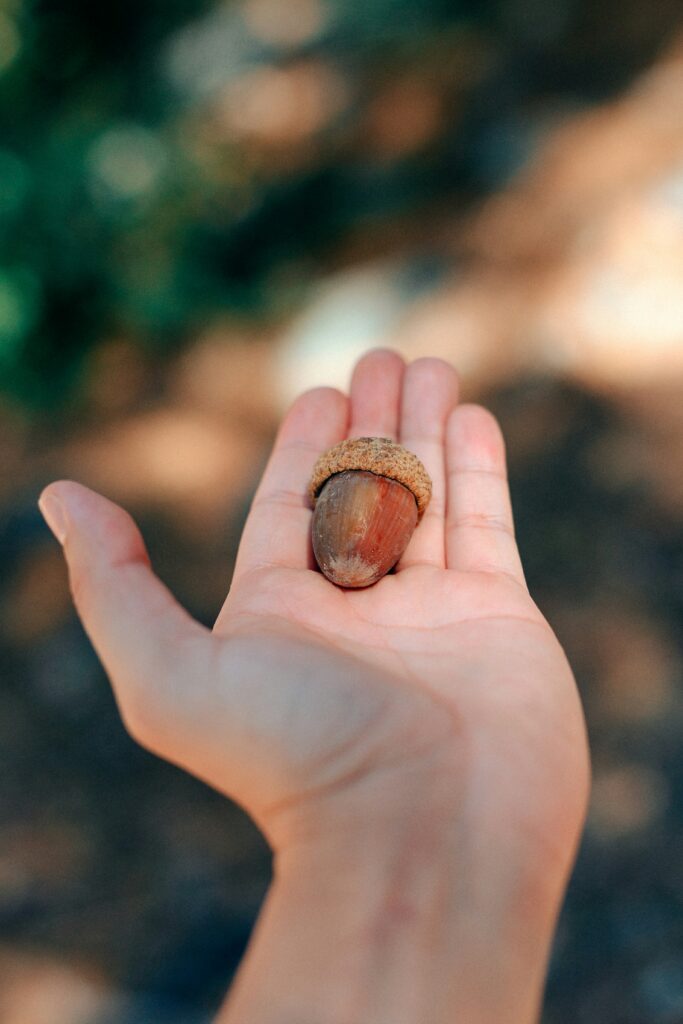“The hour has come for the Son of Man to be glorified. Truly, truly, I say to you, unless a grain of wheat falls into the earth and dies, it remains alone; but if it dies, it bears much fruit. Whoever loves his life loses it, and whoever hates his life in this world will keep it for eternal life. If anyone serves me, he must follow me; and where I am, there will my servant be also. If anyone serves me, the Father will honor him.” — John 12:23-26 ESV
As I’ve been contemplating and praying through this passage recently, something particular stood out to me. This teaching from Jesus is given on Palm Sunday, shortly after the Triumphant Entry. Having seen the festive procession as Jesus entered Jerusalem and the Temple Mount, some Greeks “came to Philip, who was from Bethsaida in Galilee, and asked him, ‘Sir, we wish to see Jesus.’ Philip went and told Andrew; Andrew and Philip went and told Jesus.” (John 12:21-22 ESV) The passage above is Jesus’ response to their request. If you pause for just a moment and think about it, it’s a really, really weird answer. They ask to see Jesus, and Jesus says, “Unless a seed die, it can not bear much fruit.” Ok. Right. Good to know. But can you have a chat with these folks or not?
The entirety of his answer comes in John 12:23-36, with verse 32 explaining and expanding verse 24: “24Truly, truly, I say to you, unless a grain of wheat falls into the earth and dies, it remains alone; but if it dies, it bears much fruit… 32And I, when I am lifted up from the earth, will draw all people to myself.” What was surely confusing to the disciples and the Greeks who wanted to see Jesus is crystal clear to us: In order for the Greeks, or anyone actually, to see see Jesus truly, He first needed to die and rise from the dead. Through the death of the one seed, Jesus Christ, the fruit of the Gospel exploded throughout the world.
There’s a lot to unpack in these short verses, and maybe we’ll do that over the next few months, but for now, consider this. Autumn, for all of its beauty, is a season of dying. The leaves change color because they’ve stopped producing chlorophyll; they’ve started to die. The seeds the trees have been growing all year long fall to the ground. The crops have finished their season of growth and are starting to ripen. The harvest is being gathered in. And yet none of that is an end. All of that is used to begin the process of new life and growth. That new life and growth won’t be evident until months of gestation have passed, but life, and life abundant, will burst forth. Watching the leaves fall it seems like the promise of that new life is an eternity away, but once spring comes ‘round it will be as if a mere moment has passed.
God created the natural world to work the way it does because it illustrates His truth (Psalm 19:1-4). In God’s great redemptive work, nothing is wasted. Even death, that which seems like the ultimate and permanent ending, becomes the seed and soil that nurtures exponentially more life. There is great comfort in knowing that when we die there will be a double blessing: We will be blessed by rising to eternal life with Jesus (1 Cor. 15:52-54) and the Kingdom of God will be blessed as God takes our dying and uses it to glorify Himself and bring forth abundant new life (John 12:27-28).
The future is always scary, because from our finite perspective it’s so uncertain. But it isn’t, really. God is not just God of the past and present, He is God of the future as well. What seems uncertain and constantly changing for us is sure and certain for God. It is because God holds the future in His hands that we can know with absolute certainty nothing that happens will go to waste, not even death. Leaves die and fall and decompose to provide the nutrients that the seeds that fell need in order to give life to much new fruit. What is true in nature is true in us. And what is true in us is true in the Church as well.
For we know that the whole creation has been groaning together in the pains of childbirth until now. And not only the creation, but we ourselves, who have the firstfruits of the Spirit, groan inwardly as we wait eagerly for adoption as sons, the redemption of our bodies. For in this hope we were saved. Now hope that is seen is not hope. For who hopes for what he sees? But if we hope for what we do not see, we wait for it with patience. — Rom. 8:22-25 ESV
Blessings,
Rev. David Garrison

